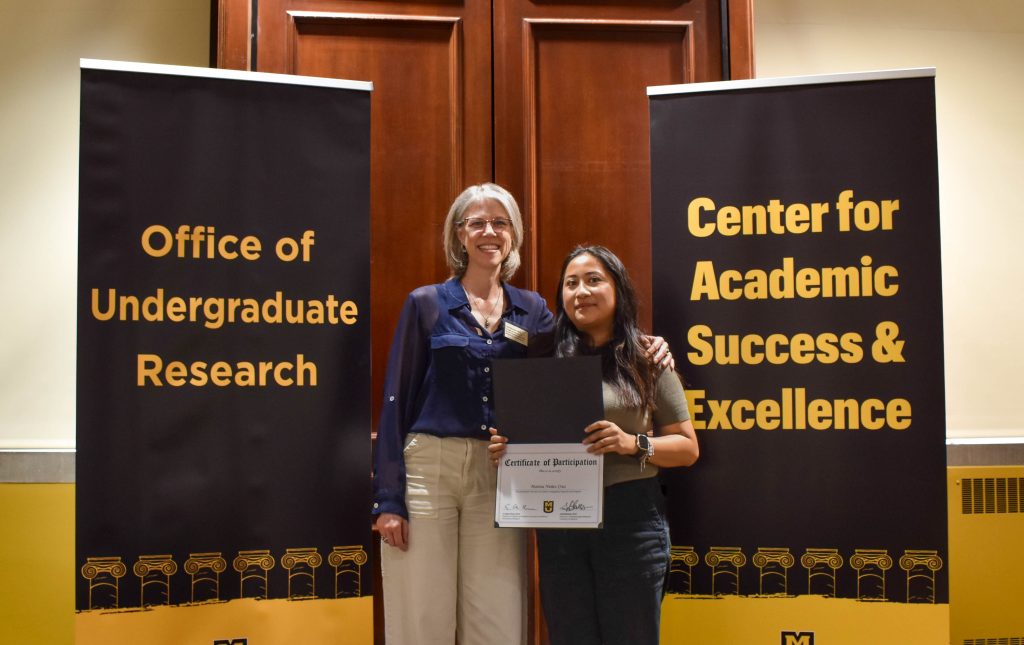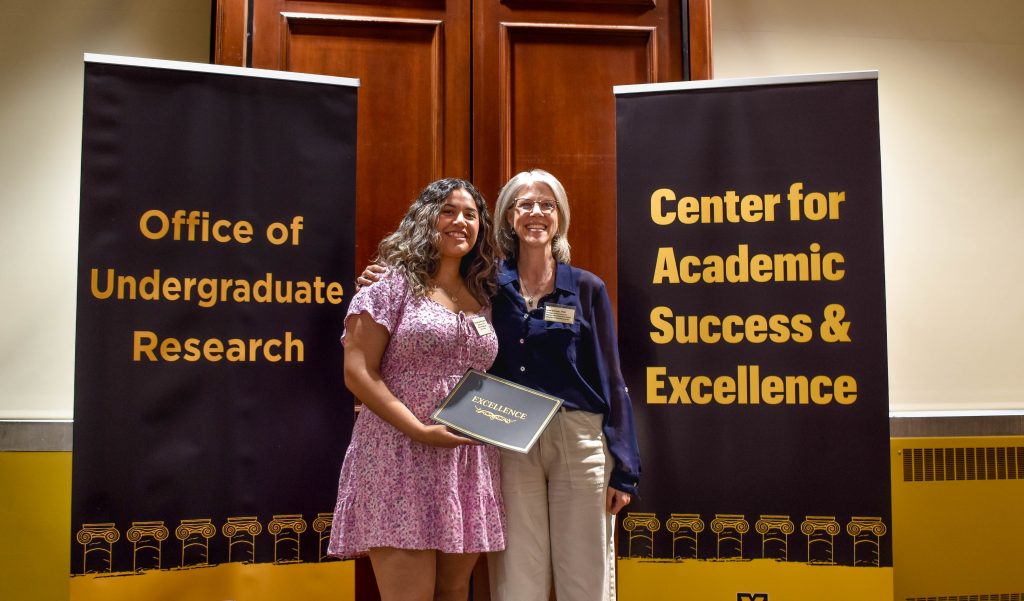Published on
By Jake Aron


Lisa Dorner, Ph.D., is a mentor for two students in KC Scholars Undergraduate Research Circles.
The program, funded by a MizzouForward grant and Great Jobs Kansas City, are small groups of undergraduate students from Kansas City engaged in year-long paid research opportunities with faculty mentors. Members of each research circle – one for engineering and one for children’s issues –meet weekly during the school year to strengthen their research and professional skills and deepen their understanding of the discipline. The research circles are offered through the Center for Academic Success and Excellence (CASE) and the Office of Undergraduate Research.
Dorner’s research focuses on bilingual education, bilingualism, immigrant families and integration. As Dorner notes, Kansas City has a “100 year-plus history of demographic change, especially in immigration and migration from Mexico.” Because of this history, Dorner thought she would find mentees through KC Scholars’ undergraduate research circles who were interested in similar research.
Dorner’s two research circle mentees are Marena Nuñez Cruz and Yesenia Moreno.
Cruz, a sophomore middle school education major from Kansas City, conducted research on the history of dual language education in Kansas City public schools, where she attended school.
Dorner is proud of Cruz’s willingness to dive headfirst into research, especially considering she never thought she would conduct research in college.
Moreno, a sophomore psychology major, is working with graduate students at UCLA on a study about language brokering – the practice of children and young adults translating and interpreting language for their parents and community members.
While her fellow research team members have different perspectives and experiences of language brokering, Moreno, who is bilingual, brings first-hand language brokering experience to the team.
Dorner is impressed with Moreno’s courage to speak up as a sophomore in a study filled with graduate students and teachers. “I don’t think I was so brave when I was a sophomore in college,” Dorner said.
Dorner doesn’t just enjoy mentoring Cruz and Moreno; she’s also learning from them. “When you create a research team, having multiple perspectives is beneficial, and can help the research team do better work, because it’s not just coming from one experience or perspective.”
In addition to learning from, and appreciating, her mentees, she’s also fond of the community that the research circles have built for students. Each week, students meet in their cohort, consisting of other KC Scholar research circle members, to connect with one another. “I think having spaces like that for students – spaces for belonging and learning together – are really important,” Dorner said.
Cruz agrees. She connected with her cohort by sharing stories about places they had all visited in Kansas City.
“I found most of my friends through the KC Scholars cohort,” Cruz said, “The community building is amazing.”
As for mentoring students, Dorner says, if you have the time, it’s important to be a mentor. “It really provides an opportunity, not only to meet the mission of our research institution and grow our research in new ways, but it also provides opportunities to develop critical thinking and work with people from different experiences and backgrounds,” Dorner said.
For faculty and instructors who are considering becoming mentors, Dorner recommends signing up for the Office of Undergraduate Research newsletter.
When it comes to mentoring undergraduate students, Dorner said, “it’s just figuring out a few new things to do with students to really integrate them into the team.” She continues, “You do have to be thoughtful about it, but it’s possible.”
If you’re interested in mentoring undergraduate students, activate your faculty profile on Forager One.